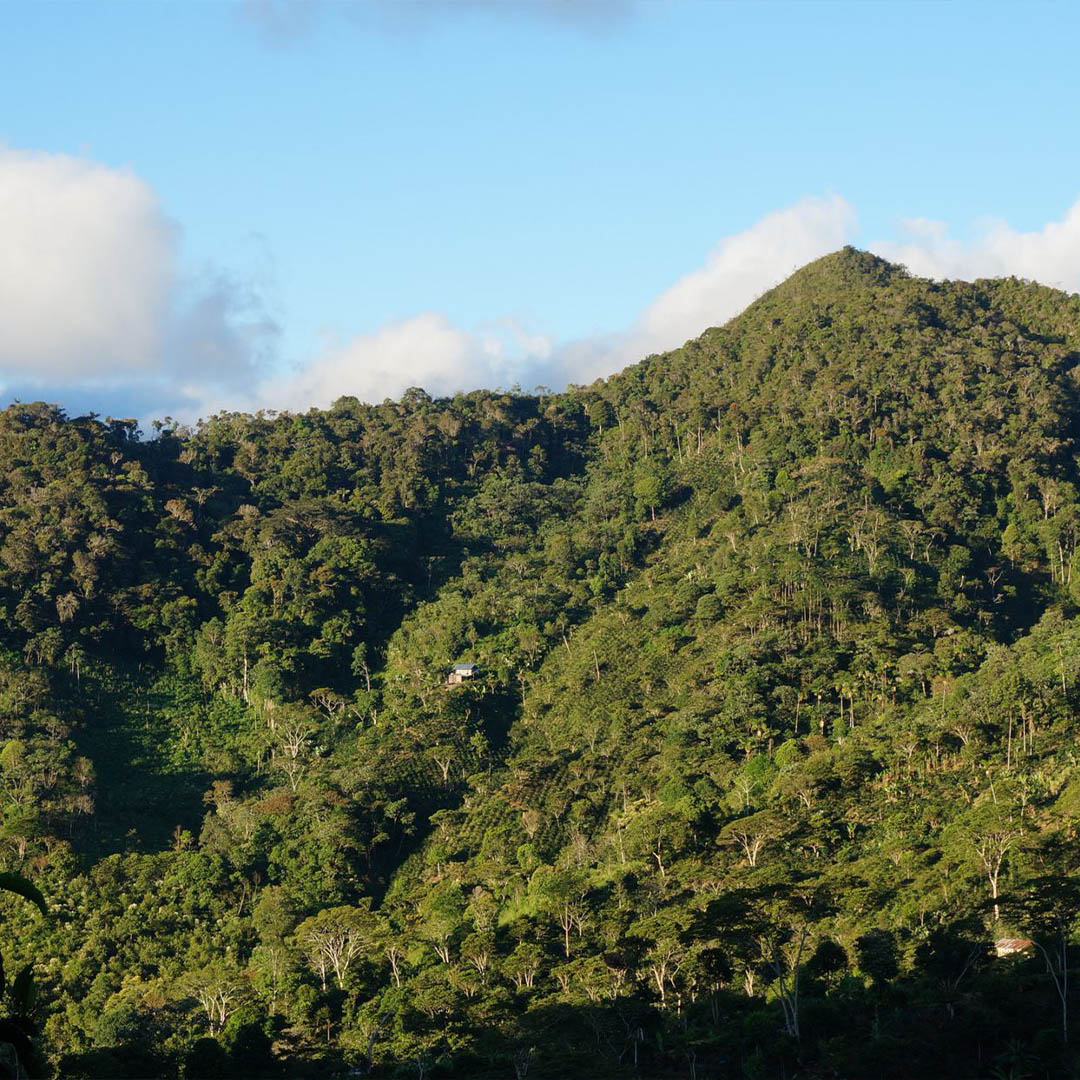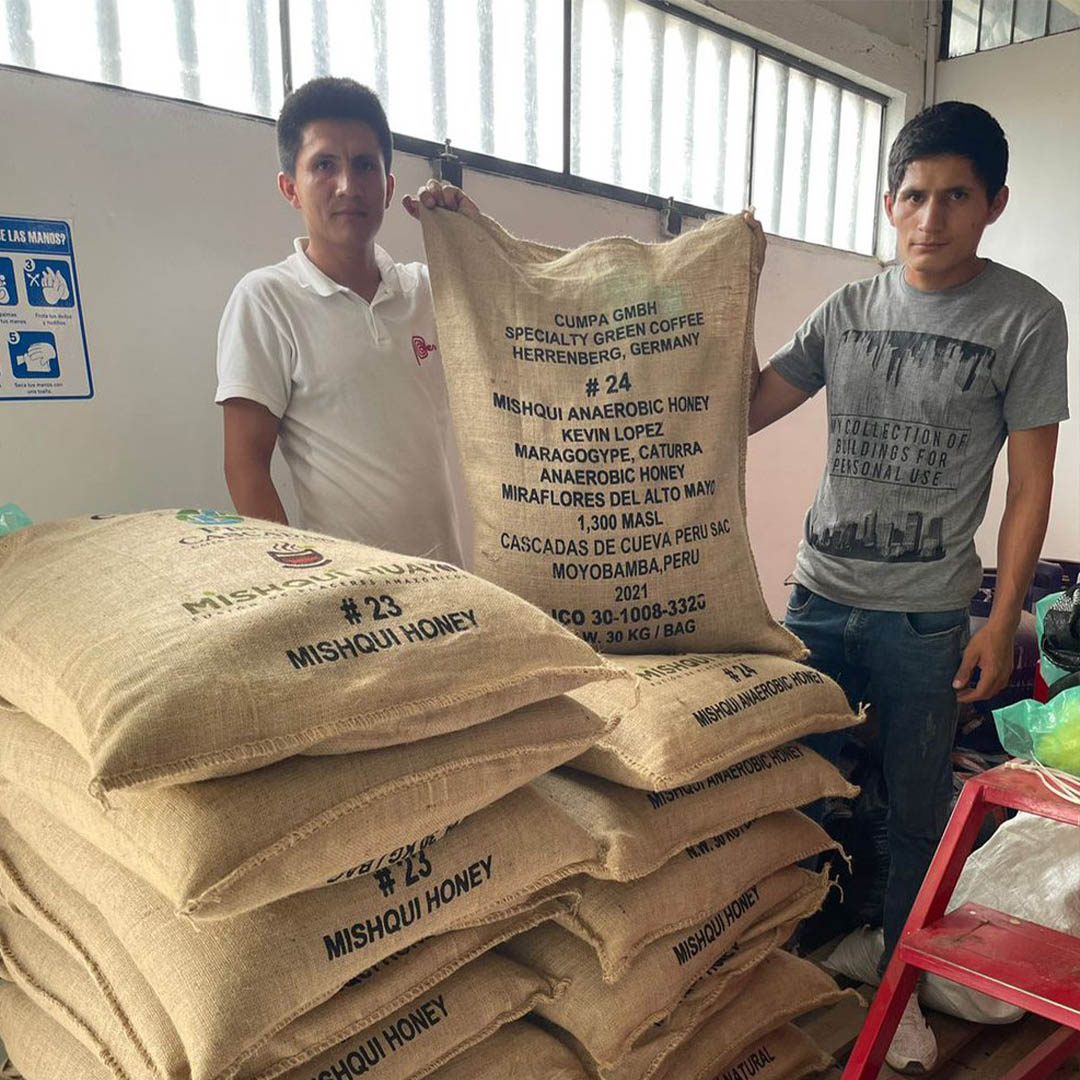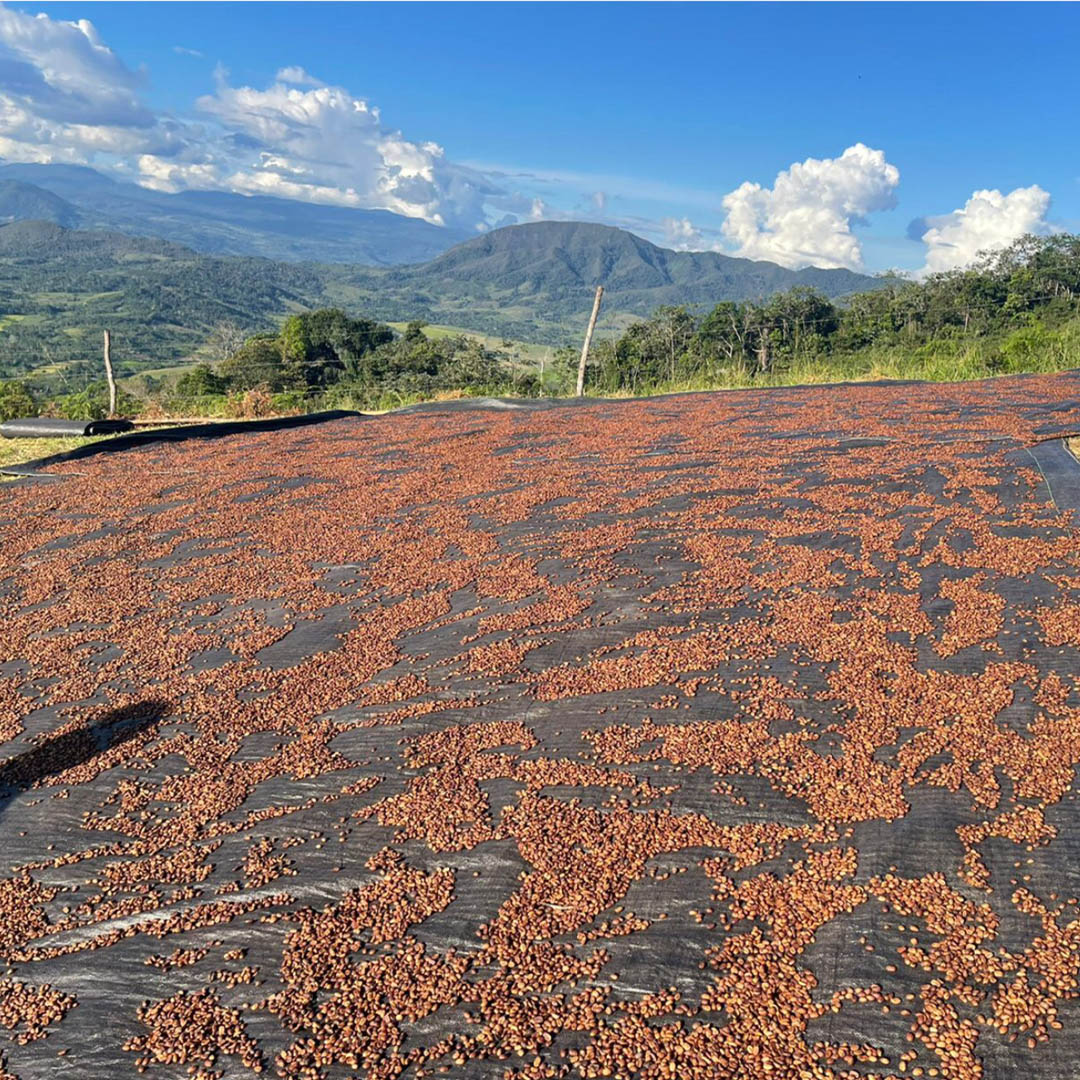Our Coffees
Alto Rioja, Mishqui Anaerobic Honey Moyobamba, Peru
Notes: Fruits Bomb, Sparkling, Winy
Producer
Kevin Lopez and his brother Andy
Altitude
1300 m
Environment
Tropical
Species
Arabica
Varietal
Maragogype and Caturra
Harvest period
March to September
Harvest Type
Manual
Drying
Shaded drying beds
Process
Honey-Anaerobic
Price
250.00kr
250 gr
1 Kg Special Price
12% Tax Included
We also accept these payment methods

OVERVIEW
Kevin Lopez and his brother Andy come from a family of coffee producers. They live near Moyobamba on the other side of the Rio Mayo river, which determines the climate of the whole valley. The two brothers work hand in hand while managing their production as a company. Together, they implement various innovations on their finca. With the support of Mishqui Huayo, they fermented their honey for two days in cherry and three days anaerobically in sugar mucilage before gently drying it.
ABOUT
The brothers Kevin and Andy Lopez live close to Moyobamba in the valley of the Mayo River. They come from a family of coffe producers. The zone they come from is situated on the side of the Mayo River and has an altitude of 1.300 masl. In the last decades. the people have poblated the zone. fleeing from the Andes towards the djungle, with most oft hem starting an existence as coffee farmers. The climate change is most notable in these lower areas along the Mayo River. The coffee rust and the coffee borer are everywhere. Many of the neighbours of kevin and Andy have left Arabica coffee and try to make a living of rice or cattle or their lands. But the Lopez family stands against this trend and produce finest coffees under shade trees, showing the neighbourds that the land can still produce coffee. Not any coffee, but the country’s best coffees. With their inspirational work they detain the migration and protect the rainforest
THE STORY
The varieties for this coffee are quite fine: Maragogype and Cutturra. Having both varieties very highly susceptible to coffee leaf rust is a big challenge for Kevin and Andy,especially as they live in the lower and thus hotter areas. But with organic humus, shade trees and a good finca architectura, they have mastered the cultivation. Like all Peruvian farmers, Andy and Kevin harvest the cherries by hand. For this coffee, only perfectly ripe cherries were harvested. The ripeness was controlled by measuring the sugar content with a Brixmeter. Kevin and Andy are happy to count on the help of Mishqui Huayo, a small local company that is specialized in specialty coffee consultance, selection and export of Microlots.
After the harvest, the two brothers took the coffees on a adventurous fermetation, that started with 48 hours of anaerobic natural fermentation and was continued by 80 hours of anaerobic fermentation in sugar slime. Just then, after five and a half days of fermentation, the coffee was dried in shaded drying beds, using the wind more than the sun for the drying process, By this, a homogeneous development of the drying process can be assured. When the coffee met the targeted humidity of 11% the coffee was immediately transferred to the Mishqui Huayo Central in Moyobamba, where the coffee was selected.
The milling and selection of anaerobic honey coffees is not easy. Nevertheless, the great team behind Mishqui Huayo put all effort into it to reach a theoretical zero defect coffee. Therefore the coffee was selected by size, by weight and by colour. In a last step they double checked under LED light and hand selected the last doubts away. Of course, the coffee was cupped again after each step.
In 2021, Mishqui Huayo presented increddible coffees as outcomes of his partnerships. In the first specialty coffee championship of the Peruvian county San Martin, Mishqui Huayo producers won first and second place. The coffee is not something privileged to farmers in the highest areas. With the right processes, even lower areas can reach levels of 90+ cupscores. This conclusion is new. In the last decade it was believed en Peru. That altitude would both determine and limit the quality of coffees.
By cultivating noble and vulnerable varieties in lower Peru, the team aroud the brothers and Mishqui Huayo shows, that coffee does not need to migrate in higher areas for profitability. The forest can be be protected, and the agricultural land can be used for a living. Their work, once recognized and imitated, can have a major impact on the social and ecological landscape in the region. With us paying high prices, we play a part in this social transition.
By innovating their production processes, they show that the potential of coffee is limitless, no matter at what altitude it is produced. For this season, the farmers are experimeting with yeasts and even longer fermentations.




